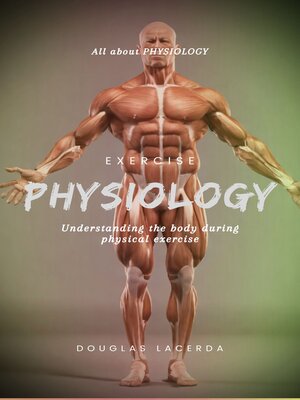
Sign up to save your library
With an OverDrive account, you can save your favorite libraries for at-a-glance information about availability. Find out more about OverDrive accounts.
Find this title in Libby, the library reading app by OverDrive.



Search for a digital library with this title
Title found at these libraries:
| Loading... |
Exercise physiology is a field of study that focuses on understanding the effects of exercise on the human body. This area of study encompasses several systems of the human body, including the cardiovascular, respiratory, muscular, nervous, endocrine and immune systems.
When the human body is subjected to physical exercise, several physiological adaptations occur that affect both the metabolic and functional systems of the body. The cardiovascular system, for example, responds to exercise by increasing heart rate, cardiac output, and blood pressure in order to deliver more blood and oxygen to the muscles being exercised. The respiratory system, in turn, increases respiratory rate and pulmonary ventilation to increase the supply of oxygen to working muscles.
The muscular and skeletal systems also undergo adaptations in response to exercise. Muscle fibers are recruited according to the intensity of the exercise and the type of muscle fiber predominant in the muscle in question. Additionally, exercise leads to changes in the structure and function of muscles, including increased muscle mass, improved muscular strength and endurance, and reduced risk of injury.
Other systems are also affected by exercise, such as the nervous system, which regulates muscle activity and coordinates movement, and the endocrine system, which releases hormones that affect metabolism, energy and tissue repair. The immune system can also be affected by exercise, with some studies showing that moderate exercise can boost immunity and reduce the risk of infectious diseases.
In summary, exercise physiology is a complex and multifaceted field that involves a series of physiological adaptations of the human body in response to physical exercise. Studying these adaptations is essential to understanding how exercise can be used to improve people's health and well-being, as well as to optimize athletic and sporting performance.
In addition to the physiological adaptations mentioned above, exercise physiology also involves the study of different types of exercise and their effects on the human body. There are different types of exercises, such as resistance exercises, aerobic exercises, strength exercises, flexibility exercises, among others. Each type of exercise has specific effects on the body, and knowledge of these effects is important for prescribing exercises and designing appropriate training programs.
Another important aspect of exercise physiology is the study of long-term adaptations. The human body is able to adapt to regular and continuous physical exercise, resulting in improvements in health and athletic performance. These adaptations include increasing aerobic capacity, increasing muscular strength and endurance, improving body composition, and reducing the risk of chronic diseases.
In addition, exercise physiology also encompasses the study of factors that can influence athletic performance, such as nutrition, sleep, stress and environment. Knowledge of these factors is essential for developing training strategies and maximizing sports performance.
In conclusion, exercise physiology is a fascinating and extremely important field of study for understanding the effects of physical exercise on the human body. Understanding the body's physiological adaptations in response to exercise can help promote health and well-being, improve athletic performance, and develop more efficient training strategies.







